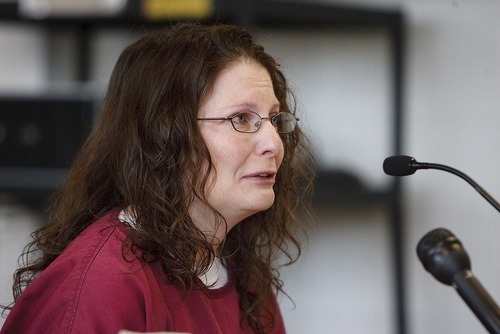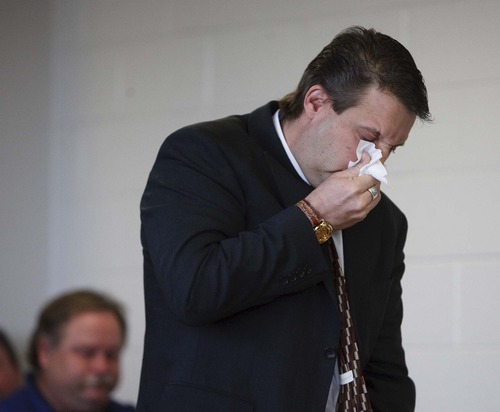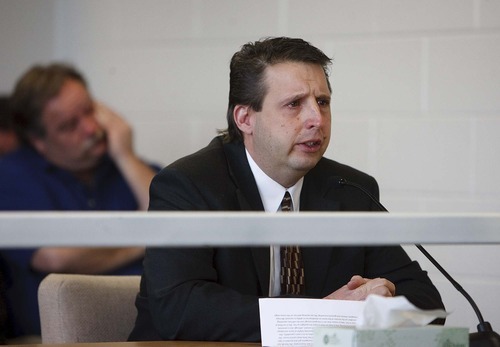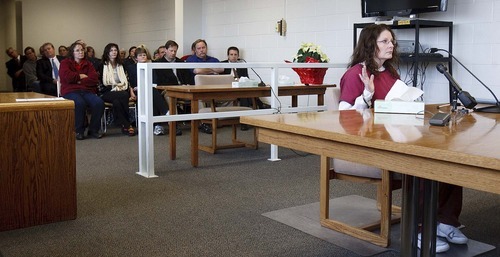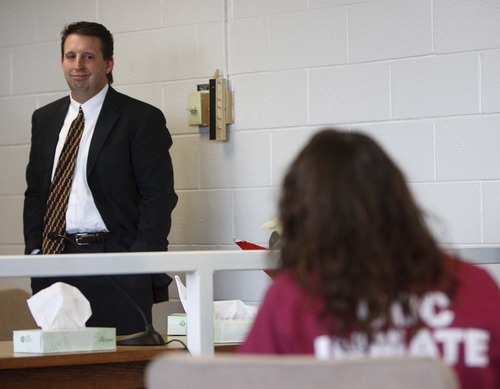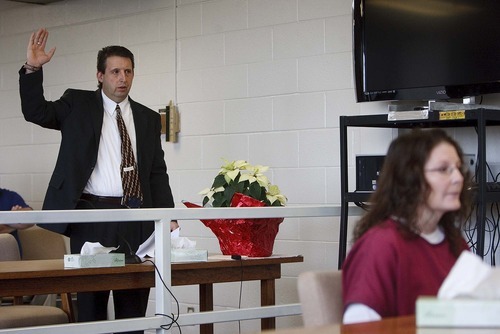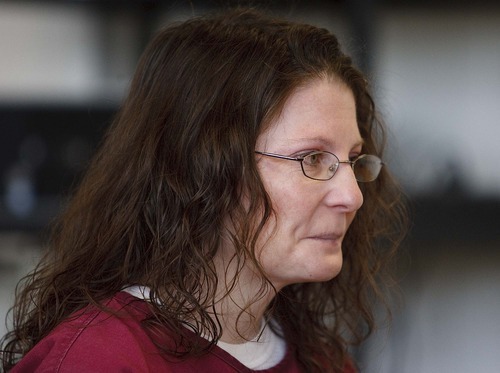This is an archived article that was published on sltrib.com in 2011, and information in the article may be outdated. It is provided only for personal research purposes and may not be reprinted.
Draper • Jennete Killpack — serving up to 15 years behind bars for killing her 4-year-old adopted child by "water intoxication" — says she is ready to go home and resume her role as a full-time mother to her four biological children.
Killpack said Tuesday during her first parole hearing: "I am not the same person I was when I walked through these [prison] gates."
The 35-year-old Springville woman tearfully told parole board member Curt Garner that she now understands the triggers that led her to physically abuse and ultimately cause the death of Cassandra Killpack in 2002 by forcing her to drink a gallon of water.
"It will never, ever happen again," said Killpack, who was convicted by a 4th District Court jury of second-degree felony child abuse homicide and has been in prison for four years.
Killpack's husband, Richard Killpack, who was acquitted of the same charge, begged for his wife's release, telling Garner that the couple's four girls are suffering because of their mother's imprisonment.
Richard Killpack said their oldest daughter, who is turning 16, grapples with loneliness, low self-esteem and fear of dating.
"I try to help," he said, "but I'm a bumbling father who doesn't understand teenage girls."
Meanwhile, their 8-year-old daughter has put her LDS Church baptism on hold until after the parole board decides her mother's fate.
The girl has said that if her mother is not present for her baptism, "her heart is going to break in half," the father said.
Garner, who gave no hint of how he is leaning on the question of Killpack's release, said a decision from all five members of the Utah Board of Pardons and Parole will come within about four weeks. Garner did note that Jennete Killpack, who has no prior criminal record, has been a model inmate.
At their 2005 trial, the Killpacks claimed the forced water treatment was therapy designed to get the girl, who purportedly suffered from reactive attachment disorder, to bond with her adoptive mother.
To facilitate the bonding, Jennete Killpack was supposed to provide the girl with all her food and drink. When the girl drank liquids not given by her mother, a therapist had recommended forcing the girl to drink an excess amount.
On June 9, 2002, the day Cassandra died, she had sneaked a sip of her baby sister's juice.
Jennete Killpack has said she forced the girl to drink no more than 24 ounces of water, but prosecutors claim the girl ingested at least a gallon.
The excessive water intake caused the girl's sodium levels to plummet, which caused her brain to swell to fatal proportions.
Jennete Killpack said Tuesday that Cassandra was "fighting and spitting and hitting" during the drinking punishment, and she also urinated in her pants and vomited. But Killpack said she did not respond sympathetically to the child's distress because they had been through similar episodes in the past.
Asked by Garner to characterize her emotions at the time, Killpack said, "I was cold."
"I realized I'd entered into a power struggle," Killpack recalled, "and I was told [by therapists] it was important not to lose a power struggle."
But according to trial testimony, Jennete Killpack had inflicted abuse that exceeded the bounds of accepted therapy and child discipline. In the months leading up to the fatal abuse, she had bitten the girl on the face, hit her on the head with a metal spoon hard enough to draw blood and choked her, according to trial evidence.
Other testimony showed that Richard Killpack, 43, was at work when most of the abuse occurred, a fact that led to his court acquittal.
During Jennete Killpack's appeal, her attorney argued that Utah law gives parents the right to choose the kind of medical treatment they want for their children. The attorney said the Killpacks chose "water treatment" instead of psychiatry and drugs for Cassandra.
But in confirming Jennete Killpack's conviction, the Utah Supreme Court in 2008 said that nothing in the law concerning the right of parents to decide how to raise their children "can be construed as a defense against child abuse."
After Tuesday's hearing, Richard Killpack told The Salt Lake Tribune that "hundreds" of people in his community have been "fasting and praying" for his wife's release from prison.
Of his children, he said, "They need their mom."


